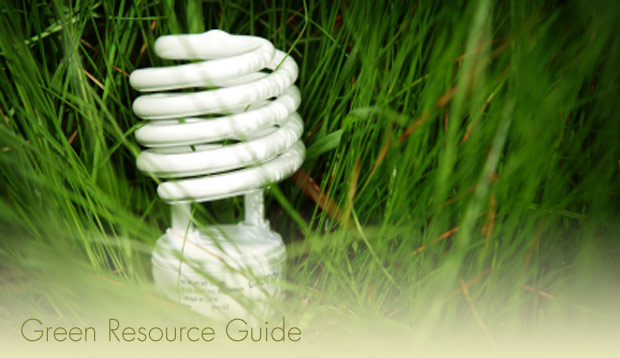Resource Guide
Follow these links to learn more about green building and eco-friendly living. Please check back, this list is updated often.
Green Consulting & LEED Certification
- U.S. Green Building Council
- Blansfield Builders
- Steven Winter Associates
Energy Efficiency FAQs
- Soy candles produce 90% less soot than other waxes with low-irritability for those with respiratory problems as they are non-toxic, non-paraffin and you can reuse or recycle the glass container.
- Phantom power usage can increase your electric bill by $60 per plug annually, so unplug your phone/PDA/MP3 charger when not in use as it will still draw electricity.
- Lighting alternatives as you transition from incandescent bulbs include low-voltage alternatives such as compact fluorescents (CFLs), light-emitting diodes (LEDs), xenon and halogen.
- Compact fluorescent bulbs (CFLs) use 2/3 less energy, generate 70% less heat, last up to 10x longer than standard bulbs and you can save $30 or more in energy costs per bulb annually.
- Indoor air quality can be 10x worse than outdoors, so make sure you use products that have low off-gassing such as low-to-no VOC paints, mattresses, nylon shower curtains and non-vinyl backed carpets.
- Hypoallergenic pillows, mattress/duvet covers and weekly laundering can lower allergens in your sleeping environment by 75%.
- Replace aerosol fragrance sprays with essential oil diffusers in your rooms.
- Rechargeable batteries last for years and are affordable today, so you can prevent landfill disposal of toxic batteries.
- Low-flow showerheads reduce water flow to a maximum of 2-5 gallons per minute (standard usage is 5 gallons/minute) and have an initial cost of less than $25.
- Use a dual-flush toilet with a maximum of 1.6 gallons per flush and save over $75 per toilet annually.
- Consider using a tankless or hybrid-tankless hot water heater to increase both your energy and water efficiency.
- Use passive lighting devices for interior hallways or closets to save hundreds of dollars annually.
- Clean your air filters regularly to ensure efficiency while heating or cooling your space.
- Consider using solar shades to ensure minimal heating and cooling losses for all seasons.
- Only 20% of homes built prior to 1980 are well insulated - and ensure that you focus on attic roof/floors, walls and basements.








